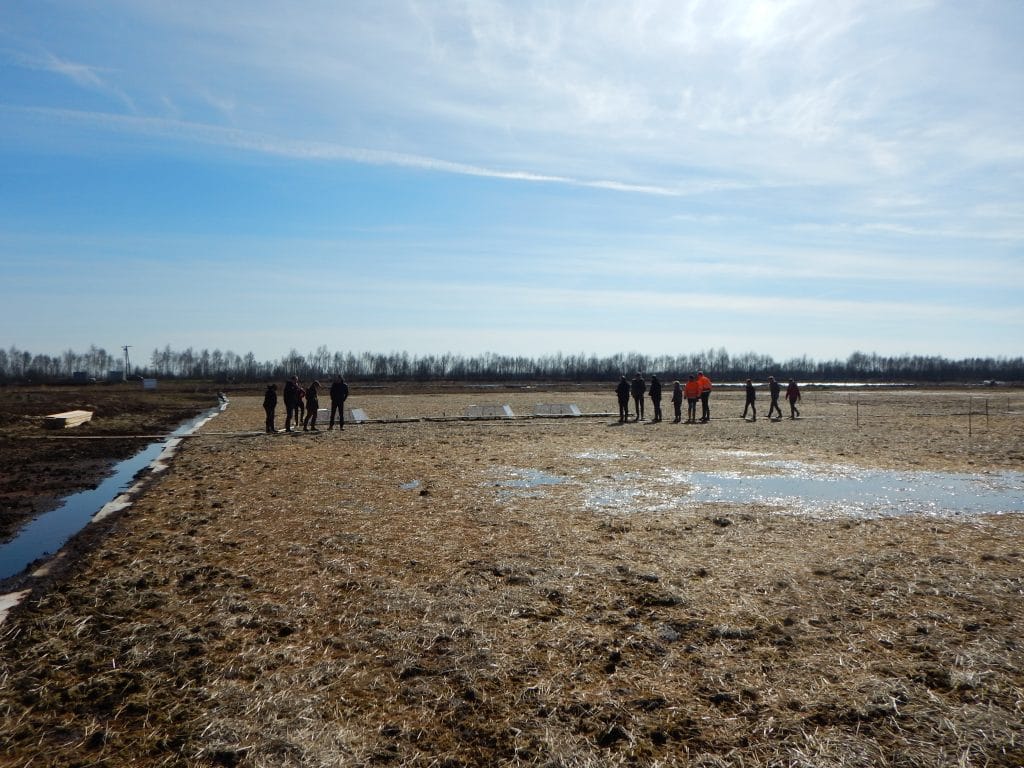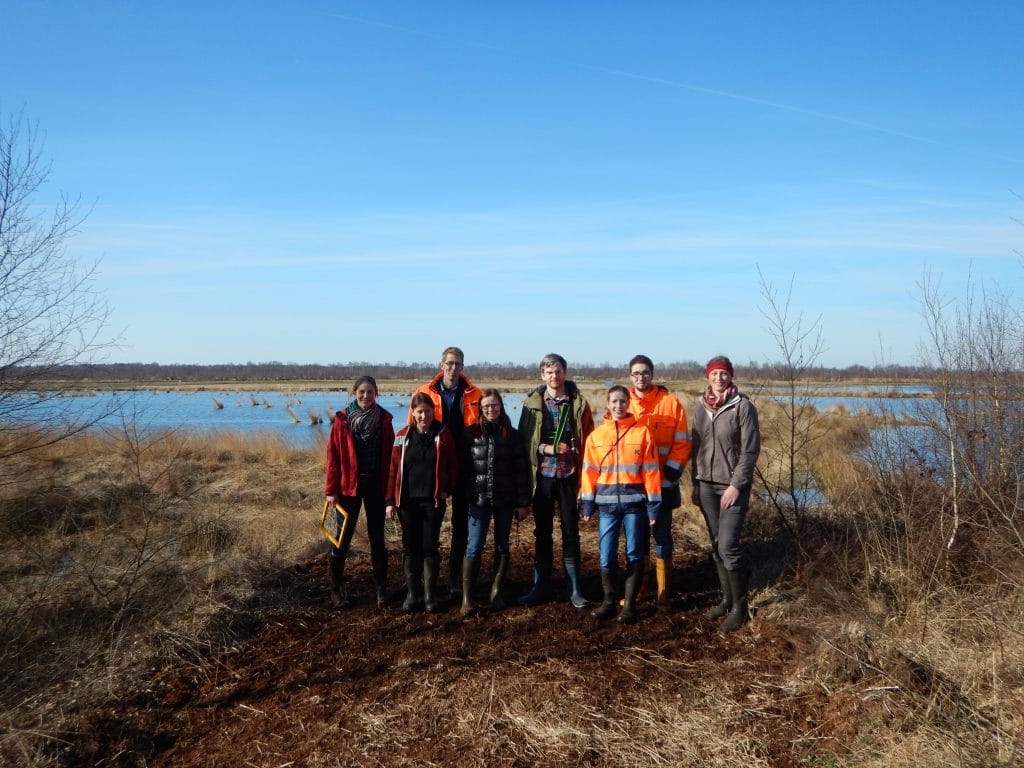Renaturation with sphagnum farming
Klasmann-Deilmann promotes fundamental research
Klasmann-Deilmann’s sphagnum farming project promotes fundamental research. Inoculating drained peat bogs with peat mosses and the associated re-waterlogging raises the success rate of restoring these sites. To mark the launch of a project by three doctoral candidates, Klasmann-Deilmann and the young scientists presented the project to the German Federal Environmental Foundation (DBU) at the project site in Geeste.
The project team is made up of Klasmann-Deilmann employees, members of Hannover University’s Institute of Environmental Planning and Thünen Institute of Climate Protection in Agriculture in Braunschweig. Together, they are investigating interdisciplinary ecological questions relating to biodiversity and the climate. Our sphagnum farming project was launched in 2015 and Master’s degree students were responsible for setting up the scientific project framework. Now, the doctoral candidates sponsored by the DBU are beginning their work.
Site installation and maintenance
 The first phase involved preparing the former peat extraction and restoration sites: ten hectares had to be levelled and fitted with an irrigation and drainage system. Working in nature reserves, the members of the project team used small shears to gently remove peat mosses for use as donor material, carrying them over plank paths onto solid ground, where they scattered them over the prepared sites and covered them with straw or fleece to help start the growing process. Since then, the project team has permanently monitored the water level before irrigating or draining the site as necessary and regularly weeded the sites to promote optimum development of the peat mosses.
The first phase involved preparing the former peat extraction and restoration sites: ten hectares had to be levelled and fitted with an irrigation and drainage system. Working in nature reserves, the members of the project team used small shears to gently remove peat mosses for use as donor material, carrying them over plank paths onto solid ground, where they scattered them over the prepared sites and covered them with straw or fleece to help start the growing process. Since then, the project team has permanently monitored the water level before irrigating or draining the site as necessary and regularly weeded the sites to promote optimum development of the peat mosses.
This project is the world’s first large-scale attempt to cultivate peat moss on black peat. After eighteen months, it is apparent that the sites are developing very well, that the moss is beginning to grow and that typical peat bog species are beginning to colonise the sites. Amanda Grobe and Lotta Zoch, doctoral candidates at the Institute of Environmental Planning at Hannover University, are now examining the flora and fauna to establish which and how many species of animals and plant benefit from the sphagnum farming. To do so, they compare colonisation on the project sites with colonisation on near-natural peat bog sites and restoration sites where there is no sphagnum farming.
Climate protection
 Doctoral candidate Jan Oestmann from the Thünen Institute is examining the greenhouse gas footprint of sphagnum farming. Drained peat bogs emit greenhouse gases and it seems reasonable to assume that these emissions will be lower on re-waterlogged sites which have been inoculated with peat mosses. Re-waterlogging degraded bogs plays an important role in promoting climate protection. Although peat bogs account for only three per cent of the total land area, they capture 30 per cent of the world’s carbon stocks.
Doctoral candidate Jan Oestmann from the Thünen Institute is examining the greenhouse gas footprint of sphagnum farming. Drained peat bogs emit greenhouse gases and it seems reasonable to assume that these emissions will be lower on re-waterlogged sites which have been inoculated with peat mosses. Re-waterlogging degraded bogs plays an important role in promoting climate protection. Although peat bogs account for only three per cent of the total land area, they capture 30 per cent of the world’s carbon stocks.
The doctoral candidates will continue their experiments on the sites until 2019 in order to obtain reliable scientific data.